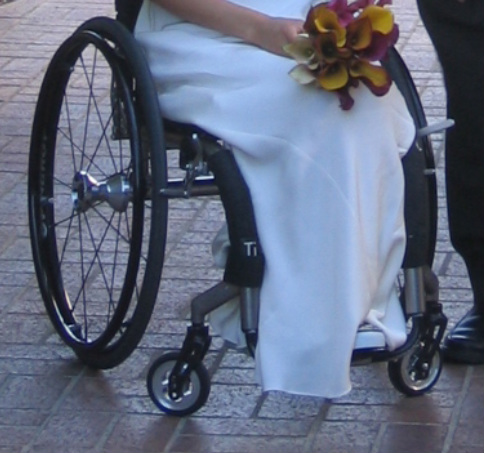 My sister-in-law on her wedding day. Most of us have someone close who has some type of disability - someone who uses a wheelchair or an aged parent or grandparent who is frail. Providing accessibility can be a challenge particularly when it can be confusing and potentially costly. Just following the advice of the local building department and the California Building Code (CBC) may still leave you vulnerable. Most accessibility lawsuits today are based not on violations of the building codes, but on the violation of civil rights under the (Federal) American with Disabilities Act (ADA) of 1990. The provision of the ADA are enforced by the Federal Courts not by the local Building Department. The Department of Justice requires State Accessibility Codes be certified by the Federal Government as meeting the minimum requirements of the ADA. To date, the California Building Code (CBC) has not been certified and there are significant differences between the CBC and the ADA. The most important thing to remember is that under ADA, all buildings completed after January 26, 1992 are considered new construction and are required to be fully compliant with ADA standards unless you can demonstrate it is structurally impossible to comply. Enforcement is increasing and owners of non-accessible public facilities are starting to feel the pressure. Reasonably accommodation and equivalent facilitation are not concepts specifically discussed in the Federal Standards. Although local building departments (Building Official) may accept what you have done as equivalent facilitation, it may still fall short of meeting Federal Standards and put you in violation of the ADA. We advise our clients at Mock/Wallace not to rely only on the judgement of the local building official, but to make their own assessment.
2 Comments
minna
6/4/2011 04:04:05 am
love you brother...
Reply
Leave a Reply.AuthorCatagories
All
Archives
October 2020
Blogs I follow
|
 RSS Feed
RSS Feed
